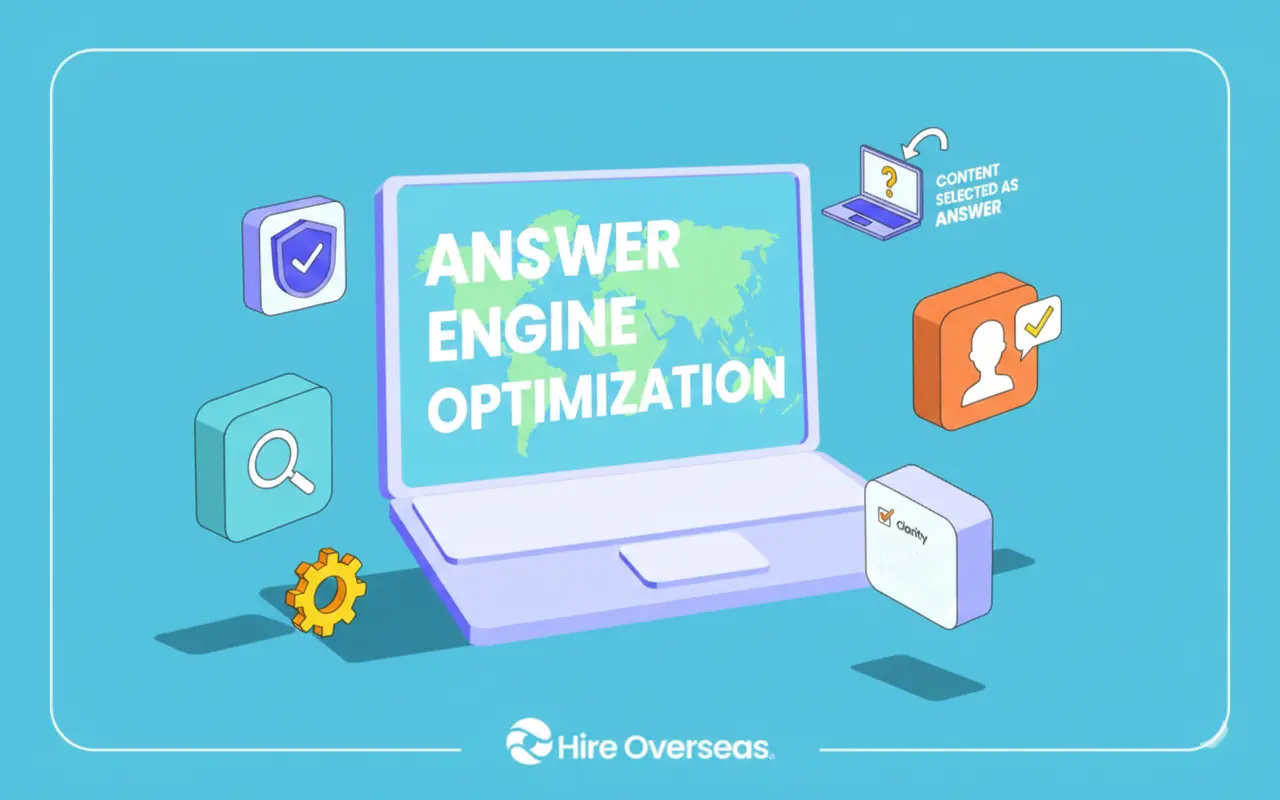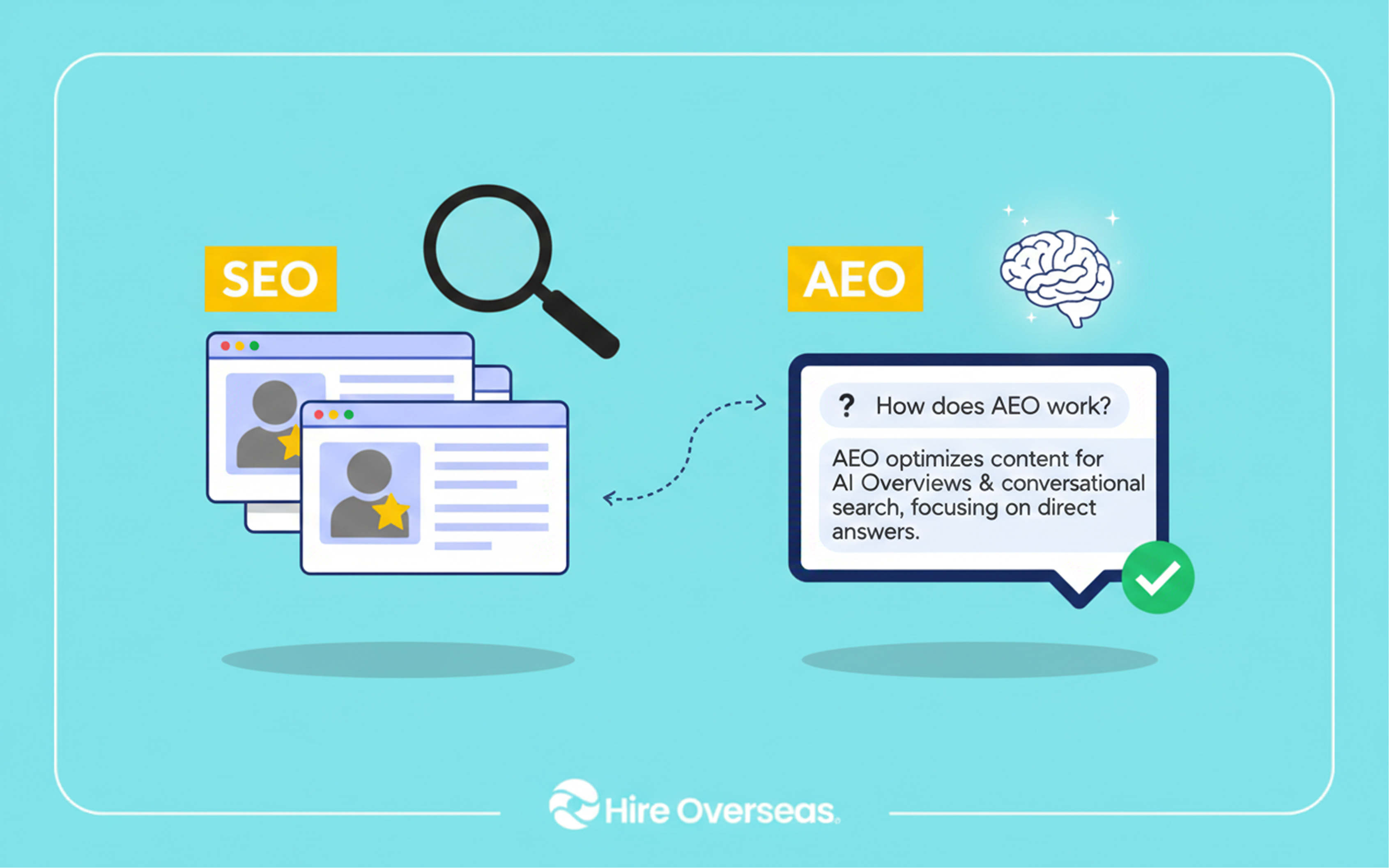International Employment Law: A Complete Guide for Employers and Talent in 2025
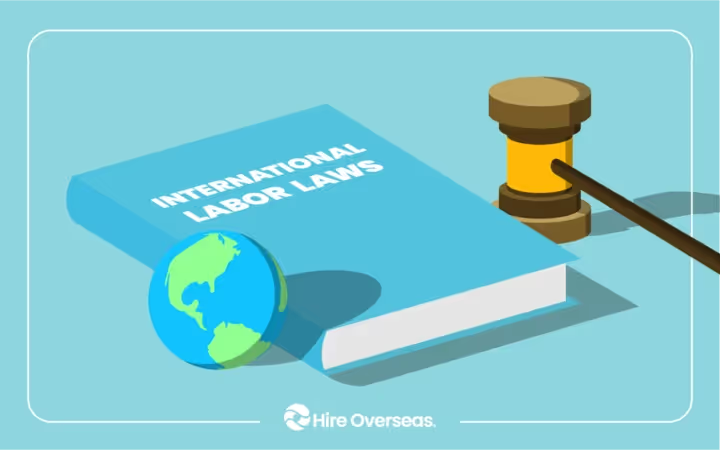
Global hiring is no longer a trend—it’s the new normal. As companies tap into international talent pools and professionals pursue remote roles, understanding international employment law is essential. Employers must comply with country-specific labor codes on wages, contracts, and termination, while employees need to know the protections available where they work. With no single global framework, both sides must navigate a patchwork of rules. ™
This guide outlines the essentials of cross-border employment law compliance, helping businesses hire confidently and empowering workers to secure fair, legally sound international contracts.
What Is International Employment Law?
International employment law covers the treaties, conventions, and local statutes that govern work arrangements across countries. While some standards are guided by organizations like the International Labor Organization (ILO), most rules fall under local jurisdiction.
That means:
- Employers must follow the labor laws of the country where the employee performs the work.
- Employees gain rights and protections based on their work location—not the employer’s headquarters.
Because no single international labor law system exists, both sides must navigate a patchwork of local regulations.
Why International Employment Law Matters
For employers, expanding globally brings opportunities—but also the responsibility of employment law compliance in every country where you hire. Missteps can lead to fines, payroll errors, or disputes with local authorities.
For talent, knowing your rights is equally important. Whether it’s fair wages, benefits, or termination protections, being informed about the laws where you work ensures you’re treated fairly and can confidently sign an international employment contract.
Bottom line: understanding the global employment law landscape isn’t just about risk management. It’s about building trust and transparency in international work relationships.
Key Considerations for Employers
Employers managing cross-border teams face a web of compliance challenges that go far beyond simple payroll. Every jurisdiction has its own requirements, and overlooking even one small detail can lead to penalties, disputes, or reputational damage. The most important considerations include:
International Hiring Compliance
Before onboarding international staff, employers may need to establish a local legal entity, partner with an Employer of Record (EOR), or register with government agencies. This also involves handling payroll taxes, pension contributions, and mandatory benefits in line with country-specific HR requirements.
Employment Law Compliance
Workplace policies must be adapted for each country. Rules around leave entitlements, public holidays, maternity and paternity benefits, working hours, and overtime vary widely, making a one-size-fits-all policy ineffective.
International Employment Contracts
Contracts must be drafted in compliance with local labor codes. This means addressing not just wages and benefits, but also probationary periods, notice requirements, and termination clauses. A contract enforceable in one jurisdiction may be invalid in another if it fails to meet statutory minimums.
Global Compliance Monitoring
Labor laws change frequently. Employers must have systems in place to track and implement updates, from minimum wage increases to new data privacy requirements. Without a monitoring strategy, companies risk falling out of compliance.
Some employers also face costs such as an international employee contract fee, which may arise when updating or localizing contracts to align with evolving legal standards in new jurisdictions.
Key Considerations for Talent
For employees working across borders, understanding your rights is essential to ensure fair treatment and workplace safety. International employment contracts should be carefully reviewed with the following in mind:
Fair Compensation
Wages, allowances, and benefits should match or exceed the legal standards of your country. This includes holiday pay, pension contributions, and any mandatory bonuses
Termination Protections
Notice periods, severance pay, and redundancy rules vary. Employees should confirm that their contracts reflect the protections guaranteed under local law.
Working Hours & Overtime
Some countries enforce strict weekly hour limits and mandatory rest breaks. Contracts that ignore these rules may not only be unenforceable but could also disadvantage employees.
Expense Reimbursements
In many jurisdictions, employers are legally required to cover certain work-related expenses such as internet access, phone costs, or ergonomic home office equipment. Employees should clarify these obligations upfront.
Understanding these details empowers talent to negotiate stronger terms, avoid misunderstandings, and protect their rights throughout their international career.
Country Snapshots: How Employment Law Compliance Varies
International employment law is rarely one-size-fits-all. Each country applies its own rules on contracts, compensation, benefits, and termination. Below are examples from the Philippines, Mexico, South Africa, the United States, and the United Kingdom that highlight how diverse employment frameworks can be.
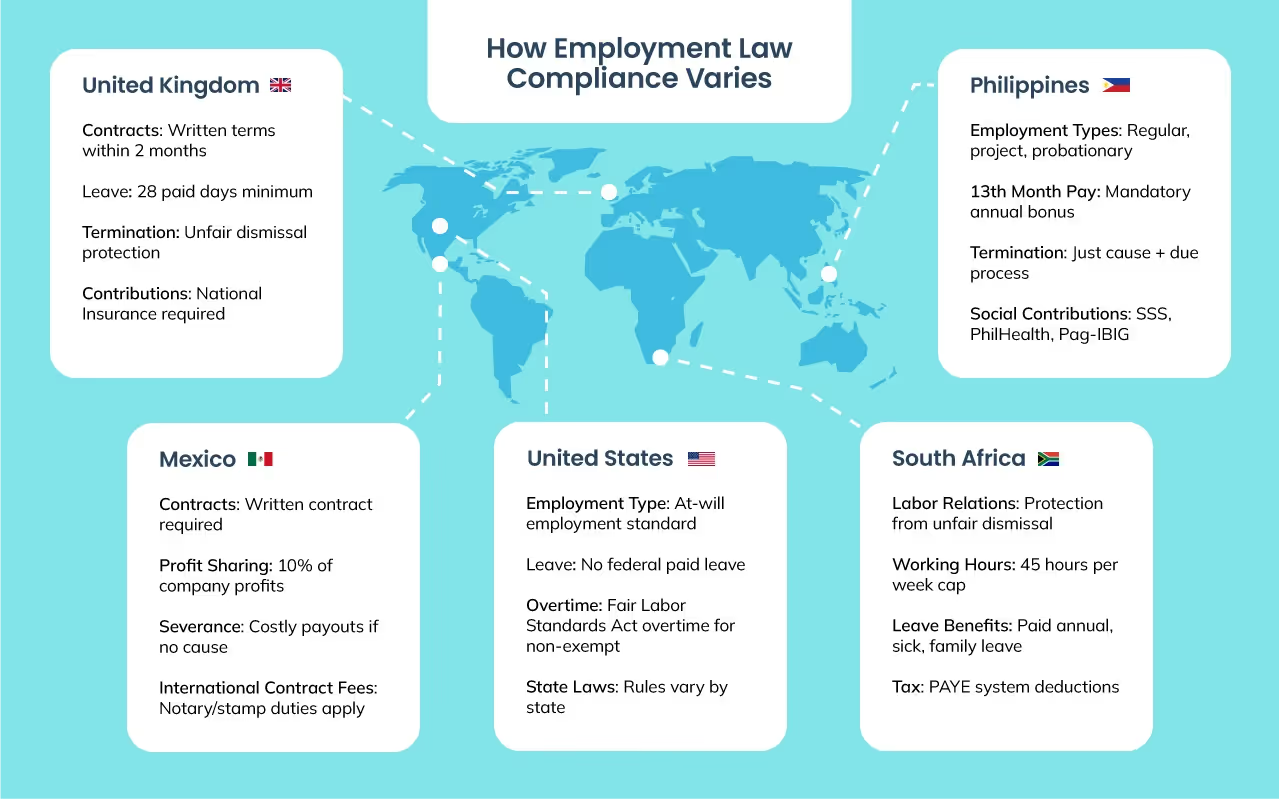
Philippines
- Employment Types: Employees are categorized as regular, project-based, or probationary, with each group enjoying distinct protections.
- 13th Month Pay: A mandatory annual bonus equal to one month’s salary applies to all rank-and-file employees.
- Termination: Employers must prove just cause and follow due process to lawfully dismiss staff.
Social Contributions: Mandatory employer contributions include SSS, PhilHealth, and the Pag-IBIG Fund.
Takeaway: Employers must budget for mandatory bonuses and ensure that dismissals comply strictly with the Labor Code.
Source: Respicio & Co. Law
Mexico
- Employment Contracts: Written contracts are required, stating the employment type and duration.
- Profit Sharing: Employees must receive 10% of company profits, a statutory entitlement.
- Severance: Termination without cause can trigger large payouts, including three months’ salary plus 20 days per year of service.
- International Employee Contract Fee: Employers may incur notary or stamp duty costs when registering contracts.
Takeaway: Mexico’s strict severance and profit-sharing rules make local legal expertise critical for compliance.
Source: ThinkGlobal HR; AngloInfo
South Africa
- Labour Relations Act: Protects against unfair dismissal and discrimination, requiring due process in terminations.
- Working Hours: Limited to 45 hours per week, with overtime capped unless agreed upon in writing.
- Leave Benefits: Employees receive paid annual leave, sick leave, maternity leave, and family responsibility leave.
- Tax: Employers must withhold and remit income tax through the PAYE system.
Takeaway: Compliance requires structured HR practices, particularly around dismissals, leave, and working hours.
Source: Lang & Co. Attorneys; Generis Global Legal Services
United States
- Employment Type: Most employees work under the at-will doctrine, meaning either party can terminate the contract with or without cause (except where restricted by law).
- Leave Entitlements: No federal requirement for paid vacation or parental leave, though the FMLA provides unpaid leave in certain cases.
- Overtime Rules: Non-exempt employees must receive overtime pay under the Fair Labor Standards Act (FLSA).
- Patchwork of State Laws: Minimum wage, sick leave, and remote work reimbursements vary by state, making employment law compliance highly decentralized.
Takeaway: Employers must adapt to a state-by-state system where rules on wages, leave, and benefits differ significantly.
Source: U.S. Department of Labor; General Counsel.
United Kingdom
- Employment Contracts: Employees are entitled to a written statement of terms within two months of starting work.
- Leave Entitlements: At least 28 days of paid annual leave, including public holidays, is required.
- Termination Rules: Employees gain unfair dismissal protection after two years of service, with notice and redundancy pay requirements.
- Social Contributions: Employers must pay into National Insurance, funding healthcare and pensions.
Takeaway: The U.K. emphasizes employee protections, requiring clear contracts, strong leave entitlements, and structured dismissal procedures.
Source: Gov.uk
Why Country Snapshots Matter
These examples show how international employment contracts must be tailored to each jurisdiction. From mandatory bonuses in the Philippines, to profit-sharing in Mexico, to state-level laws in the U.S. and statutory leave in the U.K., global hiring requires precision and planning.
👉 Want a deeper dive into how U.S. regulations shift by location? Read our full guide on remote work laws by state.
International Hiring & Worker Rights: Best Practices for Employers and Employees
Best Practices for Employers
Employers expanding across borders must treat compliance as an ongoing process, not a one-time task. Laws change frequently, and practices that are acceptable in one country may be unlawful in another. Here are some of the most effective ways to manage risk and build strong global teams:
1. Conduct Regular Compliance Audits
Regularly reviewing employment policies, payroll practices, and benefits structures helps ensure alignment with evolving regulations. This not only reduces the risk of penalties but also promotes fairness and transparency across the workforce.
2. Work with Local Legal Experts
Every jurisdiction has unique rules around contracts, working hours, leave, and terminations. Collaborating with in-country counsel or compliance partners provides employers with real-time insights and helps avoid costly mistakes when drafting or updating international employment contracts.
3. Leverage Technology for Compliance
Modern compliance platforms can track labor law changes in multiple countries, flag risks, and automate updates to policies or payroll. This technology-driven approach makes it easier to maintain employment law compliance across jurisdictions and reduces the burden on HR teams.
4. Invest in HR Training
Employers expanding globally need HR teams that genuinely care about compliance—not just checking boxes, but protecting both the business and its people. Training HR professionals to understand international labor laws ensures they can manage leave entitlements, overtime rules, and dismissal procedures with fairness and consistency.
This is where working with a global recruitment agency like Hire Overseas makes a difference. By connecting employers with talent and HR expertise that prioritize compliance, Hire Overseas helps businesses build teams that are not only skilled, but also aligned with best practices in international employment law.
Schedule a call with Hire Overseas to start hiring top remote talent and access vetted global professionals to build your team the right way.
Best Practices for Talent
For employees, awareness is the strongest protection. International employment contracts often contain complex terms, and without careful review, workers may overlook important rights or entitlements. Here’s how talent can safeguard their interests:
1. Review Employment Contracts Thoroughly
Before signing, employees should carefully examine clauses on compensation, benefits, termination, and notice periods. Ensuring that agreements meet local labor law standards prevents misunderstandings and supports fair treatment.
2. Monitor Working Hours and Pay
Tracking hours worked is essential, especially in countries with strict overtime rules. This ensures employees receive the correct pay and prevents disputes about underpayment or excessive working hours.
3. Keep Records of Work-Related Expenses
In many jurisdictions, employers are required to reimburse expenses such as internet bills, phone charges, or equipment costs. Maintaining receipts and documentation makes it easier to claim reimbursements and assert entitlements if questioned.
4. Stay Informed About Local Rights
Employment law compliance isn’t just the responsibility of employers. Employees should understand their own protections under local codes, including rights to sick leave, maternity or paternity benefits, severance pay, and protection against unfair dismissal.
By taking these steps, talent can better negotiate contracts, protect their benefits, and ensure that their international employment relationships remain both fair and legally compliant.
Find your next remote role with top companies worldwide. Join Hire Overseas
Shared Responsibility in Global Employment Compliance
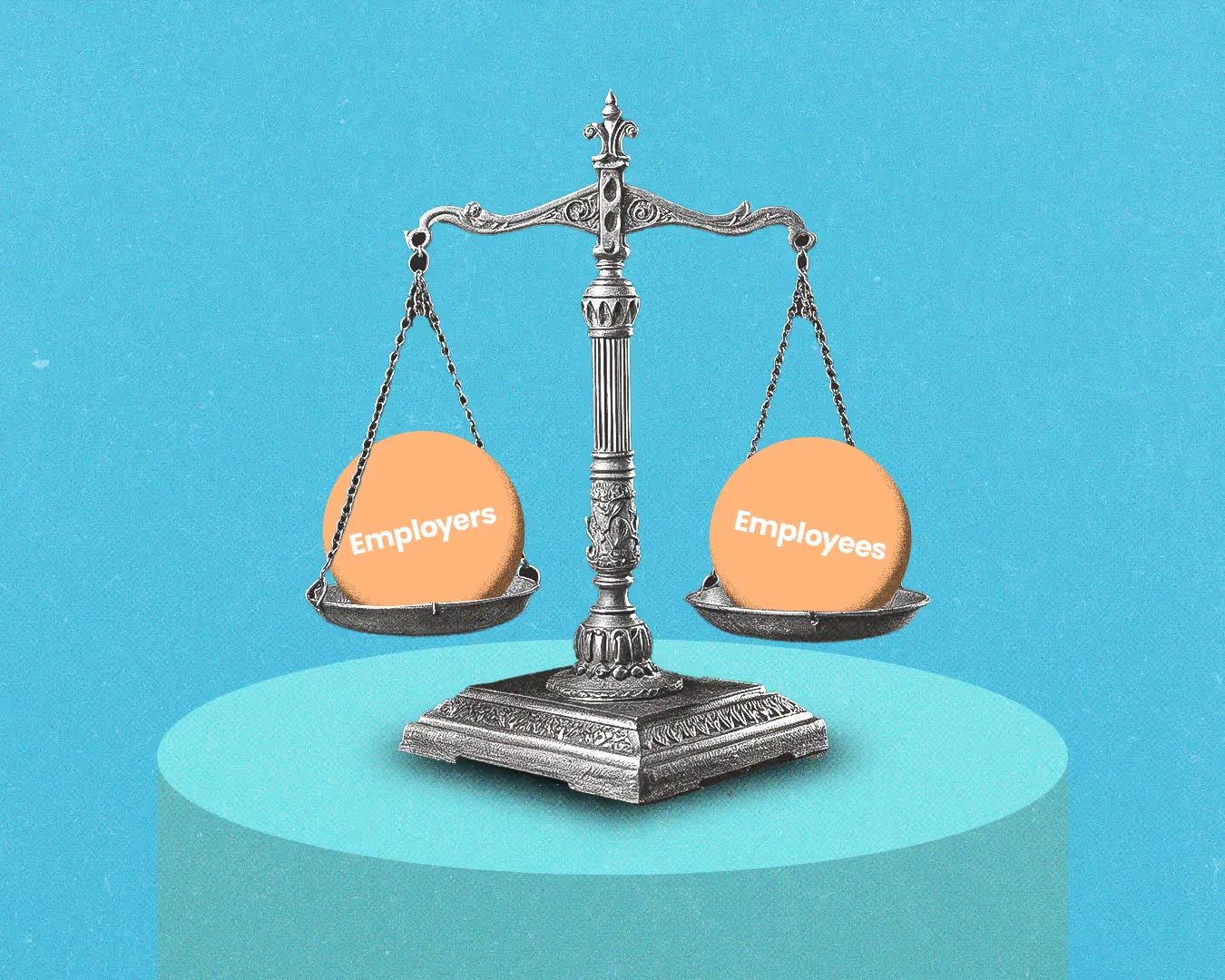
International employment law compliance is not a one-sided obligation. Employers must proactively adapt policies, contracts, and HR systems to align with local labor codes, while employees need to stay informed about their rights and responsibilities. When both sides commit to compliance, the result is a balanced relationship built on trust, transparency, and legal certainty.
For businesses, this shared approach minimizes the risk of penalties, disputes, or reputational harm. For workers, it ensures fair treatment, predictable benefits, and protections against exploitation. Together, employers and talent create a sustainable framework where global teams can thrive across borders.
International Employment Law Compliance Checklist for Employers and Talent
For Employers
For Talent
The Future of International Work
The future of work is international and both employers and professionals must take proactive steps to stay ahead of compliance challenges. Companies can no longer rely on one-size-fits-all rules, and workers can’t assume protections from one country will apply in another. The future of international work will depend on adaptability, transparency, and a shared commitment to compliance.
By staying informed and following a reliable employment law guide, employers can expand with confidence while employees safeguard their rights. Partnering with a global recruitment agency like Hire Overseas ensures access to vetted talent, compliance expertise, and the resources needed to succeed in international markets.
Ready to build your global team or find your next remote opportunity? Work with Hire Overseas and embrace the future of work without borders.
FAQs About International Employment Law
What is the difference between international employment law and global labor standards?
International employment law refers to country-specific rules that govern work, while global labor standards—such as those from the ILO—set broad principles like fair wages and safe working conditions. The former is enforceable locally, while the latter serves as a global benchmark.
Do remote employees working abroad still fall under international employment law?
Yes. Even if an employee works remotely for a company headquartered elsewhere, they are protected by the labor laws of the country where they physically perform their work.
Can employers use one standard contract for all international hires?
No. A single contract template rarely works across borders. Employers must adapt employment contracts to meet each jurisdiction’s legal minimums on wages, benefits, leave, and termination rules.
What happens if a company fails to comply with a country’s labor laws?
Non-compliance can result in fines, back payments for wages or benefits, disputes with authorities, reputational damage, or even bans on hiring in that jurisdiction.
Are independent contractors covered by international employment law?
Generally, independent contractors are not entitled to the same protections as employees. However, misclassifying workers as contractors when they function as employees can trigger penalties and retroactive benefits.
Can employees negotiate beyond local minimum standards?
Yes. While local laws set minimum requirements, employees and employers can agree on additional benefits, higher pay, or extended notice periods, as long as they don’t go below statutory standards.
Unlock Global Talent with Ease
Hire Overseas streamlines your hiring process from start to finish, connecting you with top global talent.
Unlock Global Talent with Ease
Hire Overseas streamlines your hiring process from start to finish, connecting you with top global talent.


